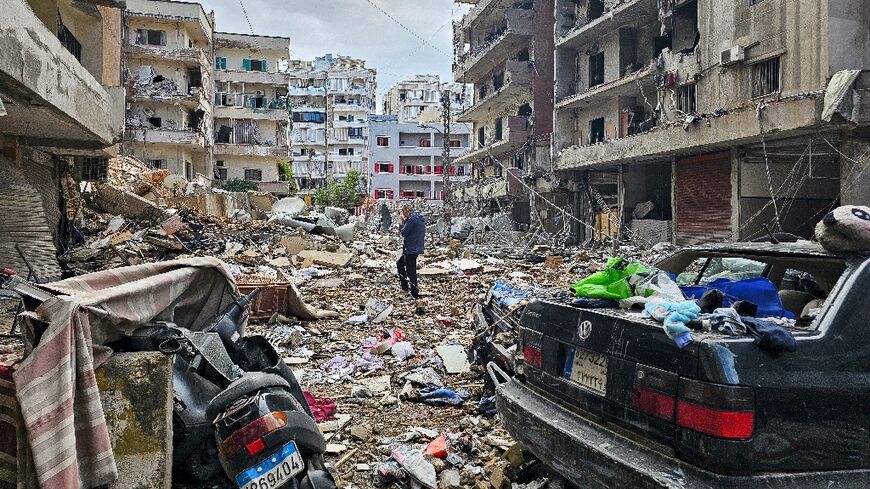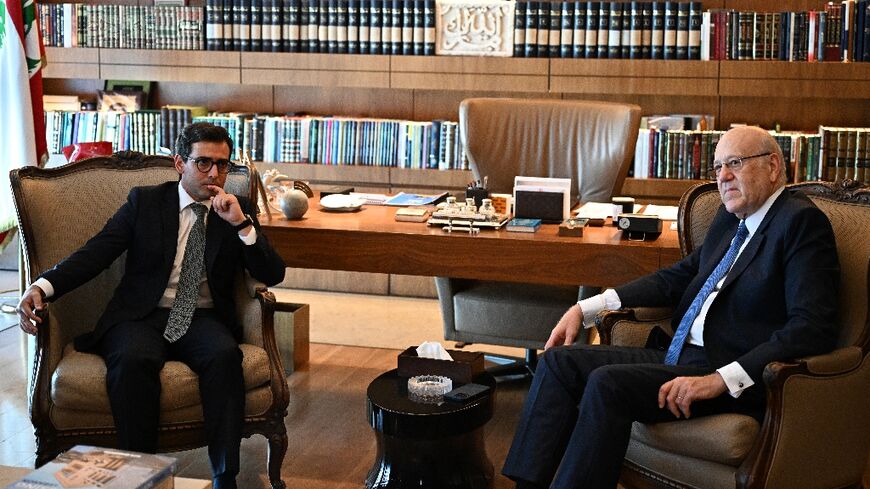In Lebanon, top French diplomat seeks Israel-Hezbollah de-escalation

France's top diplomat on Sunday urged de-escalation between Israel and the Hezbollah movement during his second visit to Lebanon since cross-border tensions flared alongside the Gaza war.
Israel and Lebanon's Iran-backed Hezbollah group have exchanged near-daily fire since Hamas's unprecedented October 7 attack on southern Israel sparked the war in Gaza.
Fighting has intensified in recent weeks, with Israel striking deeper into Lebanese territory, while Hezbollah has stepped up its missile and drone attacks on military positions in northern Israel.
The United States has led diplomatic efforts to halt violence along the border with Israel, with France also seeking ways to calm tensions.
Paris presented to both Lebanon and Israel an initiative earlier this year seeking to end hostilities.
"We refuse a worst-case scenario... No one has any interest in Israel and Hezbollah continuing this escalation. This is my message here," French Foreign Minister Stephane Sejourne told reporters in Beirut.
He said he "will bring this same message to Israel on Tuesday,"
Hezbollah has repeatedly declared that only a ceasefire in Gaza will put an end to its attacks on Israel.
A French diplomatic source told AFP that the volume of cross-border attacks had doubled since April 13.
Ahead of the press conference Sejourne met Lebanese officials, including Prime Minister Najib Mikati, army chief Joseph Aoun and influential parliamentary Speaker Nabih Berri, a Hezbollah ally.
- Proposals 'to avoid war' -
A return to stability "requires the redeployment of armed forces in southern Lebanon," he added, referring to a region where Hezbollah holds sway.
In March, Beirut submitted its response to the French initiative, based on United Nations Security Council Resolution 1701 that ended a 2006 war between Hezbollah and Israel.
The resolution called for the removal of weapons in southern Lebanon from everyone except the army and other state security forces.
The objective of that roadmap, Sejourne said, "is to achieve the full implementation by all parties of Security Council Resolution 1701."
Berri and Mikati both said that Lebanon was keen on implementing the UN resolution, according to separate statements following their meetings with Sejourne.
"The French initiative constitutes a practical framework for implementing Resolution 1701, which Lebanon is committed to implementing in full, while demanding Israel commit to it and stop its destructive aggression against southern Lebanon," Mikati said in a statement.
More than four years into an economic collapse, and essentially leaderless, Lebanon is ill-prepared for regional conflict.
Mikati has for about two years headed a caretaker government with reduced powers after a general election failed to deliver a majority to either of Lebanon's rival power blocs.
The country has not had a president since late 2022 when Michel Aoun's mandate ended without agreement on a successor.
Sejourne urged Lebanese leaders to "assume their responsibility" to agree on a new president and a government.
"Without an elected president, without a fully-functioning government, Lebanon will not... be invited to the discussion table," he said.
Earlier in the day Sejourne visited the headquarters of the United Nations' peacekeeping mission in southern Lebanon (UNIFIL), which includes around 700 French troops.
Sejourne reiterated that Paris has been making proposals to "avoid war in Lebanon".
Since October 8 at least 385 people have been killed in Lebanon, including 254 Hezbollah fighters and dozens of civilians, according to an AFP tally.
Israel says 11 soldiers and nine civilians have been killed on its side of the border.
Tens of thousands of people have been displaced on both sides.
burs-jos/ila-aya/it





